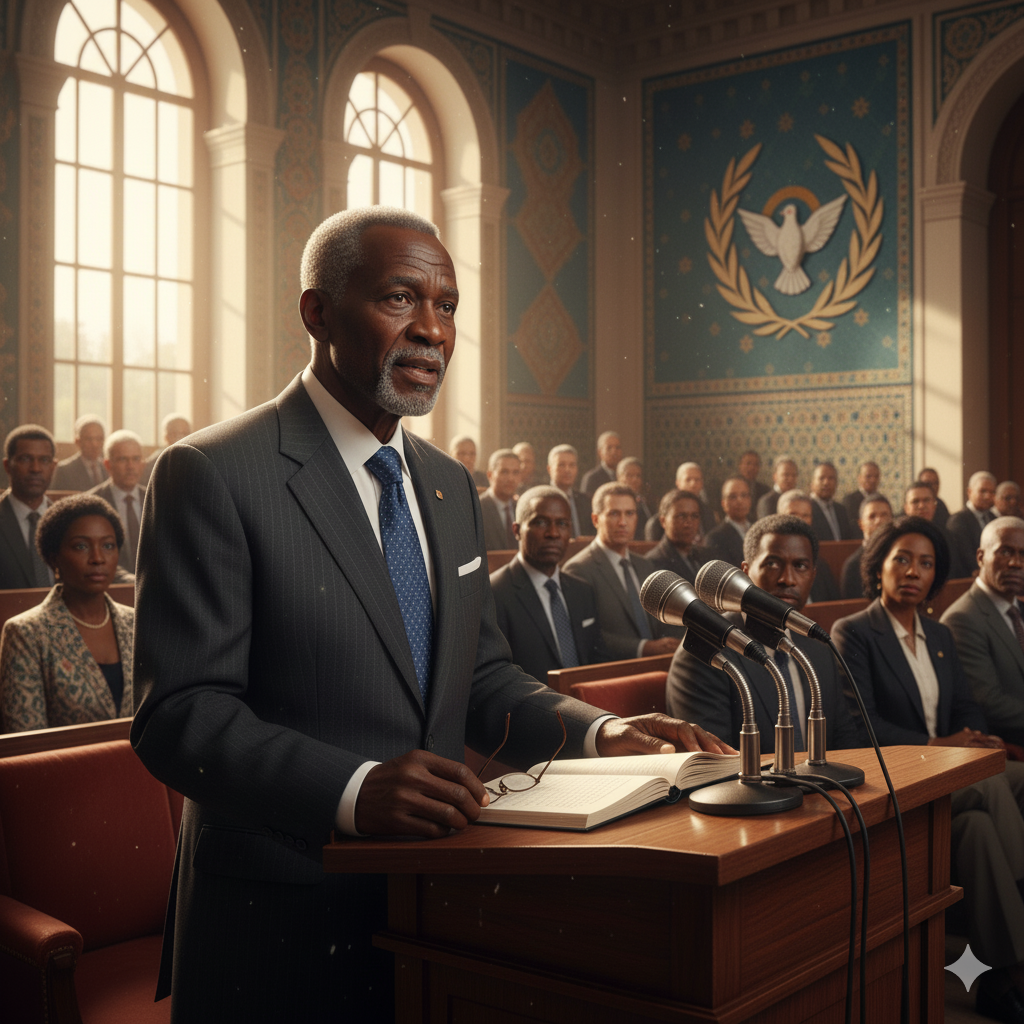Africa is a continent defined by youth but governed by age. Across 53 countries, the median age of citizens is just 19, yet the average first-time head of state takes power at 59. That forty-year gap captures one of the biggest paradoxes in modern African politics: a young population ruled by an older generation.
But as new data from 2015 to 2025 shows that this story isn’t only about how old Africa’s leaders are. It’s about how they rise to power and what that says about legitimacy, continuity, and the continent’s political future.
Our report on the Age and Governance in Africa Report explores how leadership age, pathways, and legitimacy intersect to shape political stability, youth inclusion, and the future of governance across the continent.
What Age Do African Leaders Really Step Into Power?
Between 2015 and 2025, Africa saw one of its most active decades of leadership changes in history. From coups in Mali and Burkina Faso to elections in Nigeria, Zambia, and Kenya, 38 new heads of state emerged across the continent. The data reveals a consistent pattern: the average leader steps into office at around 59 years old.
In a continent where half the population hasn’t yet turned 20, that’s a dramatic generational gap. It suggests that politics remains a game for those who have waited decades within party systems, militaries, or bureaucracies before being seen as “ready.”
The Numbers Don’t Lie
Out of 53 African countries, 38 produced new heads of state in the last decade. Only three of them were women. Most came to power in their late fifties or sixties. The youngest, Burkina Faso’s Ibrahim Traoré, was 34 when he led a coup in 2022. The oldest, Tunisia’s Mohamed Ennaceur, was 85 when he briefly served as interim president in 2019. The extremes are telling.
They show how leadership transitions are shaped less by demographic realities and more by institutional structures. Elections often reward older, long-serving politicians who have patiently climbed party ranks. Coups, on the other hand, fast-track younger leaders frustrated by a system that blocks their generation.

Beyond the “Old Leaders” Stereotype
It’s easy to dismiss African politics as being dominated by old men clinging to power. But the report reminds us that age alone doesn’t determine governance quality. A seventy-year-old elected leader with democratic legitimacy may serve citizens better than a thirty-five-year-old who seized power by force.
The real story lies in how leaders gain and hold authority. Systems that lack open succession plans or meaningful youth inclusion end up recycling the same elite class. When leadership becomes a reward for endurance instead of competence, younger citizens lose faith in democracy itself.
Ballots vs. Barracks: The Two Pathways to Power
Africa’s leadership story is split between two main routes: ballots and barracks. Elections have tended to produce older presidents with long political careers. Military takeovers, on the other hand, have thrust much younger officers into power.
In West Africa, leaders like Traoré in Burkina Faso and Goïta in Mali became heads of state in their thirties through coups. Meanwhile, elected presidents such as Bola Tinubu in Nigeria or Cyril Ramaphosa in South Africa only reached the top after decades in party politics. Each pathway carries its own legitimacy problem.
The ballot route is slow but stable; the barracks route is fast but fragile. The challenge is to find a balance that allows younger leaders to emerge legitimately, without destabilizing states.
Regional Trends
The report reveals sharp regional contrasts. West Africa has seen a wave of younger, military-led regimes, reflecting widespread frustration with civilian governments. Southern Africa remains anchored in older, party-driven transitions, with leaders like Hakainde Hichilema and Emmerson Mnangagwa continuing established traditions of long political apprenticeships.
North Africa’s pattern mirrors this, with figures like Abdelmadjid Tebboune of Algeria (74 at entry) and Kais Saied of Tunisia (61) coming from entrenched ruling structures.
Central and East Africa sit somewhere in between – more stable transitions in Kenya and Tanzania, more mixed outcomes in places like the DRC and Gabon. Across all regions, one truth stands out: age is a mirror reflecting the health of a country’s political system.

Gender and Leadership: The Missing Women in Power
Only three women became heads of state in Africa between 2015 and 2025. That’s less than eight percent. Despite years of advocacy for gender inclusion, the top seat in most countries remains male-dominated.
Female presidents like Samia Suluhu Hassan in Tanzania and Sahle-Work Zewde in Ethiopia show that women can lead effectively, but they remain exceptions, not the rule. The gender gap underscores a broader problem: the same structures that exclude young people also marginalise women. True reform must tackle both.
The Consequences of a Closed System
Africa’s closed political systems don’t just limit who leads – they shape what leaders prioritize. Older elites often focus on continuity, patronage, and control. As a result, policies on education, technology, and innovation lag behind.
The youth, who make up most of the workforce, are left feeling disconnected from decision-making. Over time, that erodes trust in democracy itself.
The report warns that without generational renewal, Africa risks deepening its legitimacy crisis. Young citizens are already turning to protests, activism, and sometimes rebellion as alternative means of influence.
Rethinking the Future: Building Pathways for Youthful, Legitimate Leadership
So where does Africa go from here? The answer isn’t to replace old leaders with young ones overnight. It’s to redesign systems that make power more inclusive and transitions more predictable.
Enforcing term limits, strengthening youth wings in political parties, and investing in civic education can all help. So can giving women and young reformers real influence, not just token positions.
Coups might feel like the only path to renewal, but real progress lies in making democracy work for the next generation. Africa’s future depends on building systems that value both the wisdom of experience and the energy of youth.
In the end, the question isn’t how old African leaders are, but how long it takes for capable, legitimate ones to rise.
To dive deeper into the findings and explore detailed data, country profiles, and insights driving this research, read the full Age and Governance in Africa Report and discover how leadership pathways are shaping the continent’s political future.





